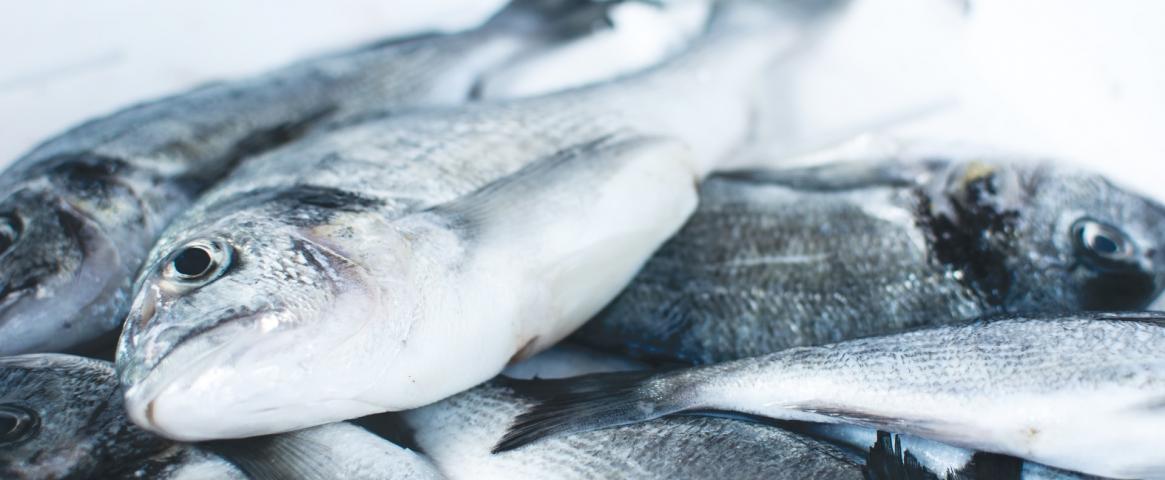By Anurag Srivastava
An average human being consumes around 63 kilograms of animal meat per year, of which 21 kg comes from marine animals and the rest from land animals. While the welfare of livestock on land is well understood and well-regulated, it seems the welfare of fish has been more or less ignored. In a paper recently published in Science Advances, Dr. Becca Franks, an environmental scientist at New York University, revealed that welfare research has not even been conducted on the vast majority of farmed fish.
Franks and her colleagues calculated 408 species were farmed in global aquaculture, which is 20 times more than the equivalent number for farmed land animals. Despite the differences that exist between them, all these diverse organisms are commonly referred to as fish. In a systematic review of the literature available for fish welfare research, Franks and her colleagues found that only 7% of species have been the subject of 5 studies or more while one to four publications exist for another 23%. The remaining 70% of species, which account for around 300 billion individual animals, have had no welfare research published about them.
The best-studied species are Atlantic salmon (accounting for 70% of aquaculture production) and the Nile tilapia. These studies focus on the ideal conditions for ensuring physical wellbeing, covering everything from water temperature to stocking density. Even for these species, however, the psychological aspect, while commonly studied for land livestock, has only recently been explored.
Part of the problem, says Franks, is that the difference between different marine species often goes unappreciated. “The word ’fish’ basically takes the incredibly diverse group of animals and collapses them into a single form and a single concept,” she says. “There is no equivalent word for land animals.” In the case of livestock welfare studies, each species is studied in turn, whereas the welfare studies in marine animals have been limited to few species and then extrapolated to all other organisms. This ignores the huge difference in life cycle as well as cognitive level. For example, Atlantic salmon are vertebrates that have different needs from invertebrates such as crayfish or crabs. Similarly, octopus, cuttlefish, and squid are broadly considered to be the most cognitively advanced group of invertebrates and are comparable to those found in some vertebrates. As Gert Filk, Emeritus professor of Fish Welfare at Radboud University, Netherlands once said: “what you call a fish may be as different as a mouse and a moose.”
Franks proposes to conduct more welfare research on species whose biology is already well understood so that their welfare needs, and environmental sustainability can be ascertained. For example, such research has already shown that humane farming of herbivorous species like Nile tilapia is more sustainable than farming of carnivorous animals like the Atlantic salmon. She hopes that this could disincentivize the cultivation of species with high welfare and environmental concerns. Dr. Sonia Rey Planellas, Lecturer in Animal welfare and behavior at the University of Stirling, UK says that “we have to be thoughtful when thinking about Nile tilapia, it is an invasive species and can destroy the local species. People in South American countries have already switched from tilapia to local species”.
It is this kind of local knowledge that Franks’s paper ignores, says Planellas. Just because a species hasn’t been written about in a scientific publication, she says, doesn't mean that people don’t know anything about these animals. “It just means that the scientists haven't been studying this species, she says. “Farmers know about their fish.”
The changes Franks would like to see will take time. Not only does more species-specific research need to be conducted, but government legislation will be needed to enforce the findings of such research. There are positive indications, with the EU publishing guidelines for fish farms (aquaculture) to make sure that the sector is run and developed sustainably, the guideline will help EU countries to update their multiannual aquaculture plan. There is also a demand by Eurogroup for Animals, an advocacy group working for the welfare of animals including fish and Open Philanthropy Project, an agency which supports the research in fish welfare and funded Franks’s paper, to ensure fish and aquaculture are represented in the UK's upcoming legislation on the welfare of animals, where the government have promised that animal welfare will be of highest standard by protecting unsustainable farming of animals. The EU guidelines and UK legislation might come into action by mid or end of next year. Both Franks and Planellas agree that a bottom up approach from consumers campaigning for better treatment will lead to more scientific research and legislation. The first step, however, is to make sure consumers know what it is they are fighting for.
Anurag Srivastava is a 3rd year Ph.D. student at the University of Turin, Italy. His research focuses on immunotherapy of pancreatic cancer. Apart from his research, he is involved in mentoring students for higher education, and career guidance. He enjoys reading non-fiction and poetry. Anurag is passionate about cooking, science communication and encouraging more empathy and compassion in science and academia. He has published stories in Science and The Cancer Researcher.
This story was produced as part of NASW's David Perlman Summer Mentoring Program, which was launched in 2020 by our Education Committee. Srivastava was mentored by Gilead Amit.
Hero image by Jakub Kapusnak on Unsplash





